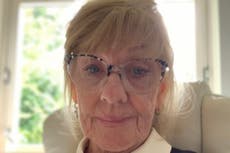Female surgeons like me face harassment and assault every single day
An anonymous female surgeon explains how a culture of misogyny in medicine not only creates a dangerous environment for practitioners but for patients too

The release of the study into sexual harassment and assault in surgery has caused widespread shock and anger within the medical world and the general public.
However, there was little surprise among female surgeons themselves. With almost two-thirds of female surgeons being the target of sexual harassment and 30 per cent subject to sexual assault, if we haven’t experienced it ourselves then we know of friends and colleagues who have.
As a female surgeon, I was always aware I was entering into a field that was particularly known for its misogyny and hostility towards women. Well-meaning advisers counselled that surgery wasn’t a good job for a woman, that it wasn’t family-friendly, and I was advised I would have to work twice as hard as my male counterparts to get to the same career milestones. I was advised to forget relationships, and that if I had children my career would be effectively over.
As a junior surgeon, male peers would tell me that my presence in the operating theatre was robbing them of their training as I would inevitably get pregnant and leave surgery, thus any time spent training me rather than them was a waste of resources.
Although I have been fortunate enough not to experience the type of assault that has been so traumatising for colleagues that it has led to them leaving medicine altogether following total inaction and a complete lack of support from their employers, I have been exposed to harassment and have witnessed misconduct on many occasions.
As a very junior surgeon assisting in a case, I was elbowed in the chest by a consultant who as he apologised told me “it’s not my fault you have big boobs”. He was heard by the entire theatre team including another consultant surgeon, a female consultant anaesthetist and multiple nursing and support staff as well as other doctors. I felt humiliated and degraded. No one in the room could meet my eye and I was unable to concentrate for the rest of the operation. I was convinced I had done something wrong that meant he felt entitled to speak to me in that way.
A friend of mine in another hospital was propositioned multiple times by a married consultant. She rejected his advances verbally each time, but he continued to escalate until he summoned her to his office, told her he felt he had earnt the right to have an affair and tried to kiss her. She refused to report him as she was in a very small specialty and felt she would be labelled as a troublemaker and would be unemployable.
Misogynistic jokes are made on a daily basis. While demonstrating a surgical technique a male colleague was advised by the male consultant to “hold the tissue down forcefully the way you would hold down a woman”.
Throughout the culture in surgery – the operating theatre, the ward rounds, and the morning handovers – lies an undercurrent of toxicity, of crude sexual jokes and innuendo all under the umbrella of “banter”. Women are implicated in this behaviour as much as the men are. Engagement with it shows you’re easy-going, can take a joke, and determines how well you fit into the team. Success in surgery requires your seniors allowing you opportunities to train and operate with them. It can be easily given, and just as easily taken away.
The power imbalance is huge, and your career progression is highly dependent on the same superiors who preside over the toxic culture (and who often participate in the harassment). Much is tolerated in order not to rock the boat. Yearly assessments and progression depend on the number of cases done, feedback from all members of the surgical team and positive reports from multiple consultants.
There is talk of this watershed study heralding the beginnings of a surgical “Me Too” moment. However, there have been multiple previous attempts to kickstart this change both in medicine and surgery.
The Royal College of Surgeons released an independent review by Helena Kennedy QC in 2021 which found that the college was failing women, ethnic minorities and LGBT+ surgeons. It set out a 16-point plan to address these failings, yet many of these points have not yet materialised. There is scepticism among many female surgeons at the outrage and shock professed by male surgical colleagues and leaders, who have either not been listening or have ignored the negative experience of females within their own department while they insist they have a zero-tolerance approach to harassment.
Assault and harassment of female surgeons is the tip of the iceberg. The rest is under the surface. Until sexism within surgery is dealt with and challenged, and until women are able to work in surgery without being subject to rape jokes or comments about their appearance, are supported when pregnant without being labelled as lazy (despite higher rates of miscarriage and fertility issues in female surgeons), and are able to balance parenthood with a surgical career without being thought of as uncommitted, then surgery will continue to be an unsafe and toxic place for women.
In the end, it won’t be just the female surgeons who will suffer, but patient care will too, as we lose talented and excellent surgeons to a culture of misogyny.



Bookmark popover
Removed from bookmarks